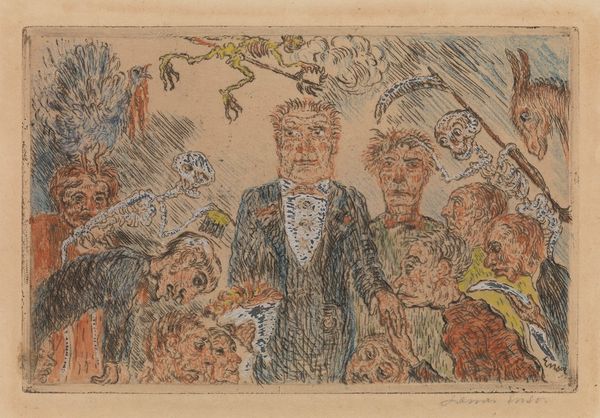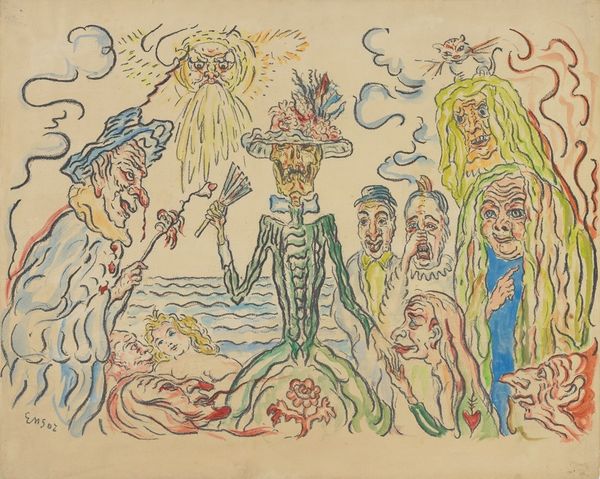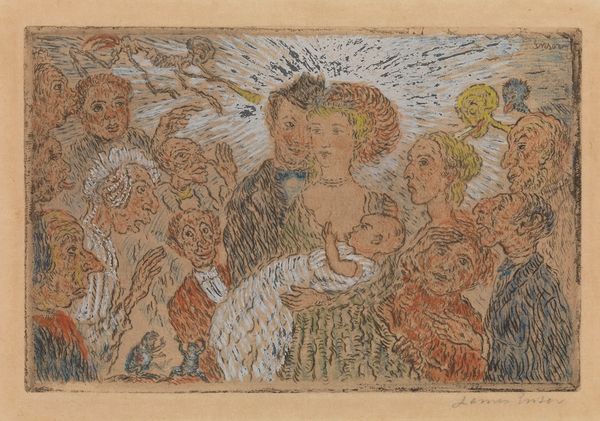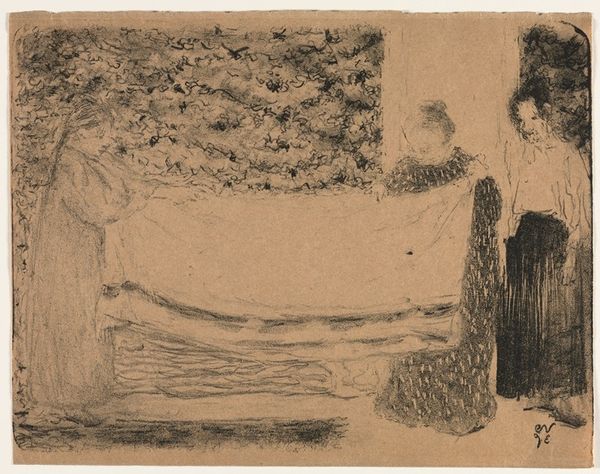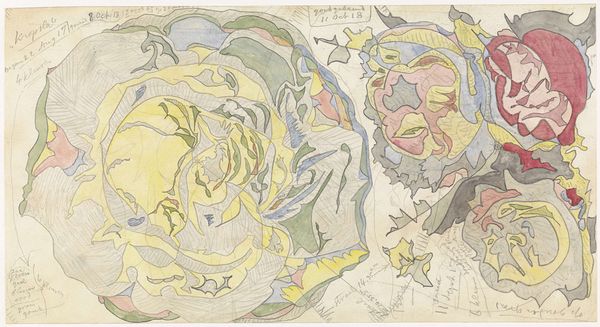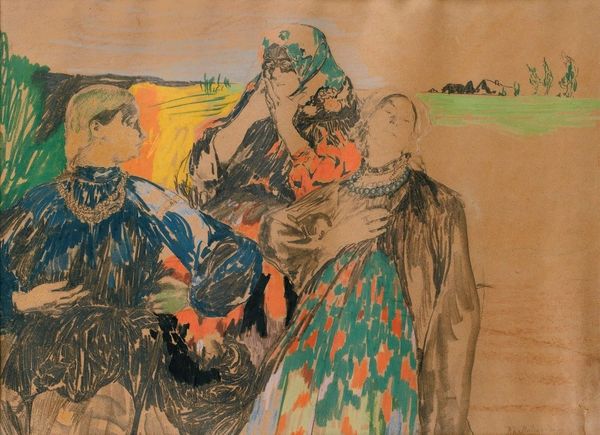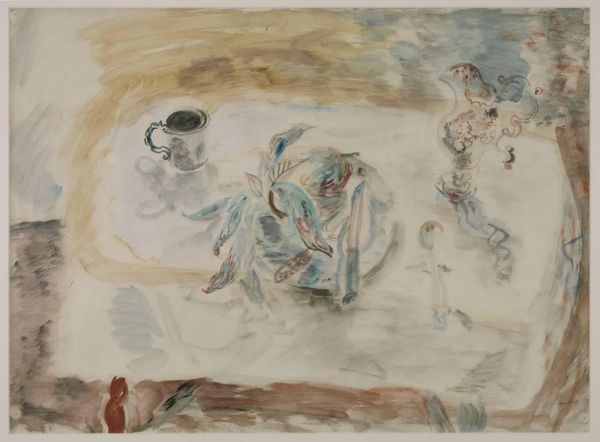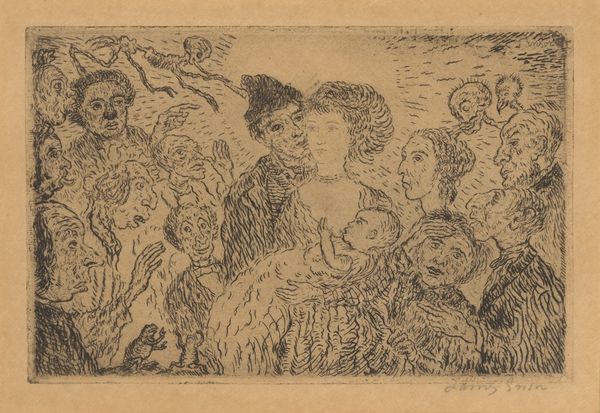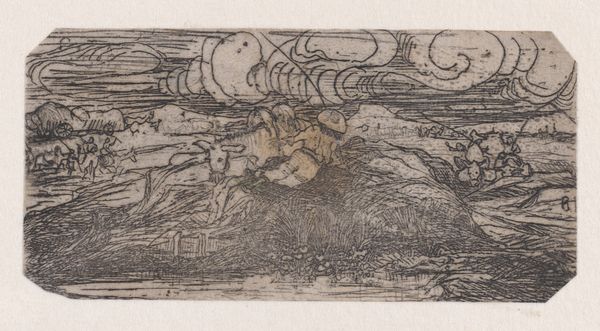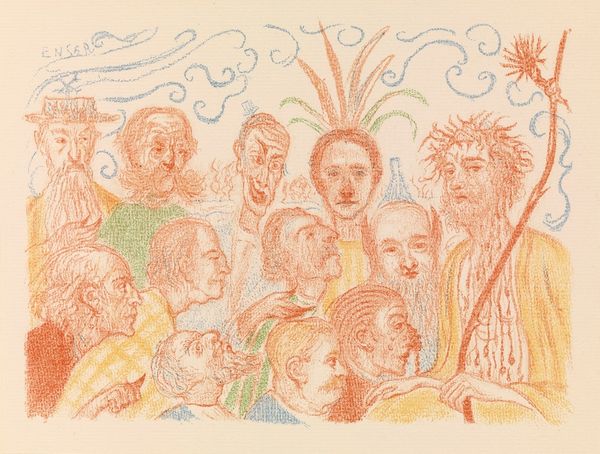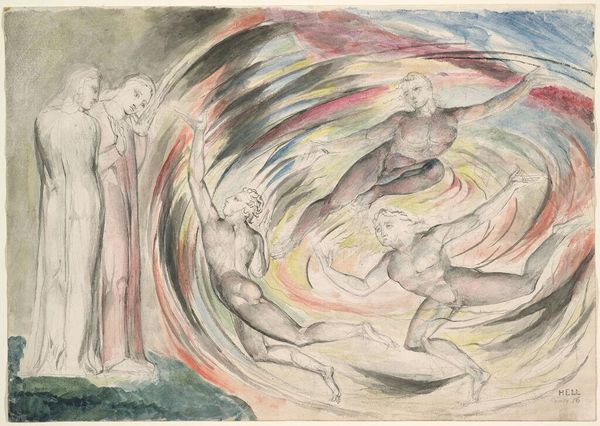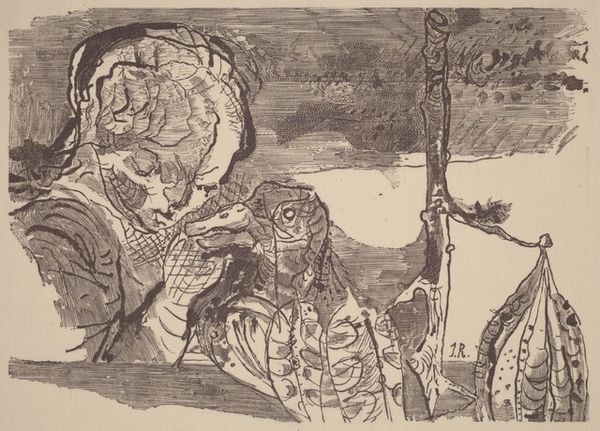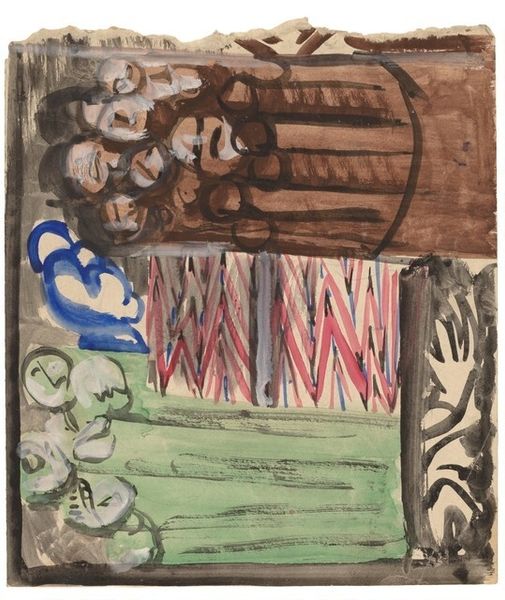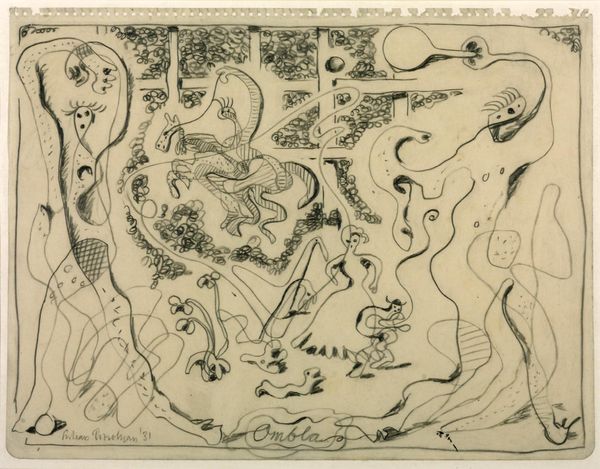
print, etching
#
portrait
# print
#
etching
#
figuration
#
coloured pencil
#
symbolism
#
history-painting
Copyright: Public Domain: Artvee
James Ensor created this etching, titled "Auto-da-fe," in 1893. The piece reflects the social and political tensions of late 19th-century Belgium. Ensor, positioned as an outsider due to his avant-garde style, often critiqued societal hypocrisy and the status quo through his art. The artwork depicts a staged execution, referencing the historical "auto-da-fé" acts of public penance and execution carried out during the Spanish and Portuguese Inquisitions. Ensor, who had strong feelings about social injustice, uses grotesque figures and macabre imagery to highlight his condemnation of authority and the abuse of power. The themes of judgment and punishment are set against a backdrop of religious and political figures, suggesting their complicity in this spectacle. The emotional impact of the artwork is intense, revealing a sense of outrage and disgust. It underscores the artist's critique of systems that perpetuate violence and dehumanization, making it a powerful statement on individual freedom against oppressive forces.
Comments
No comments
Be the first to comment and join the conversation on the ultimate creative platform.
